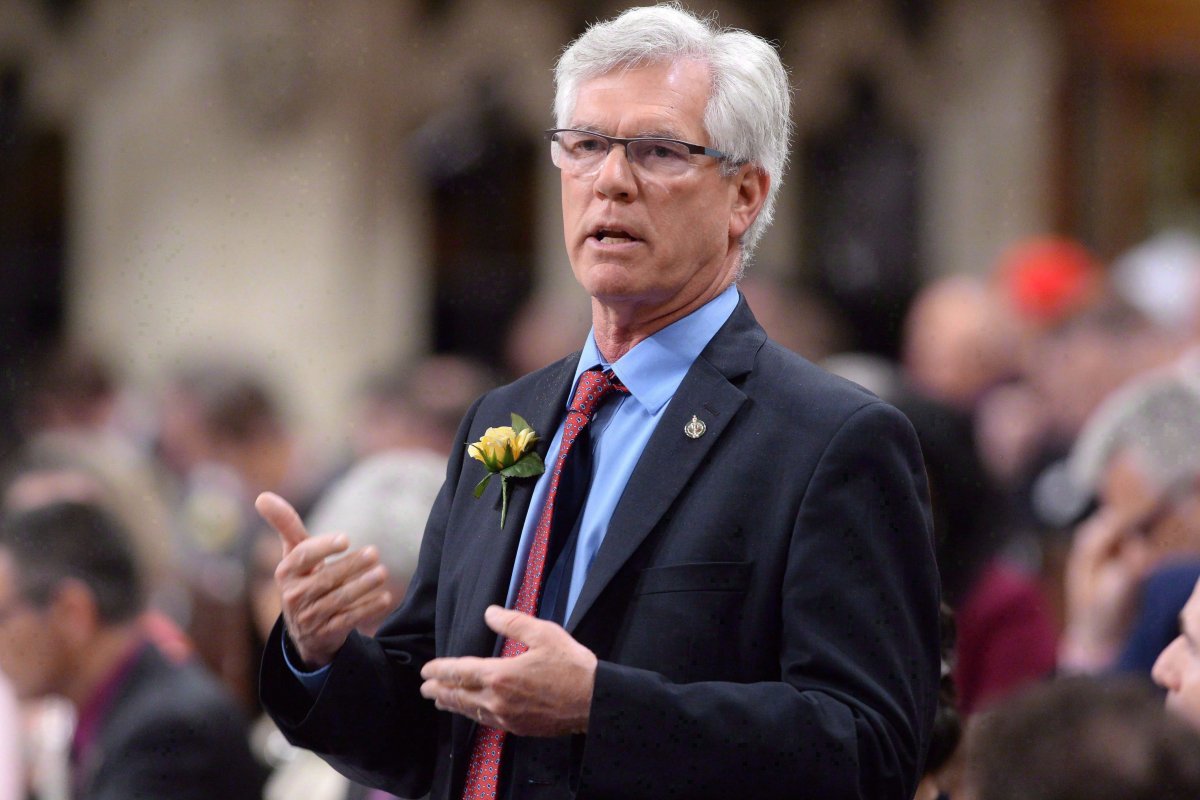OTTAWA – The Liberal government has named a diverse, five-person panel to make recommendations on overhauling the national energy regulator.

The group appointed Tuesday by Natural Resources Minister Jim Carr will examine the structure, role and mandate of the National Energy Board, which has become embroiled in controversy over its reviews of contested oil pipeline proposals.
The panel is to report to Carr by March 31 – not by the Jan. 1 deadline initially announced by the government back in June when it made public the draft mandate for the NEB review.
READ MORE: Natural resources minister says up to NEB to fix Energy East concerns
The Trudeau government announced last January that it was augmenting the existing oversight process for major energy projects, adding an examination of upstream greenhouse gas emissions and providing further public consultation in addition to the National Energy Board hearings.
But a more fundamental restructuring of the board, which was first created in 1959, was promised by the government pending a wide-ranging public consultation by a panel of experts.
“The panellists have maximum independence and liberty to be creative and I know they will be, by virtue of who they are and their disparate backgrounds,” Carr said in an interview.
“So what we’re saying to them is, ‘Go recommend the best regulator in the world.”‘
The panel is co-chaired by Helene Lauzon, president of the Quebec business council on the environment, and former Liberal MP Gary Merasty, a Saskatchewan Cree who is president of Des Nedhe Development.
There are three women and two indigenous persons on the five-member panel, which includes: David Besner, a chemical engineer who is chairman of the New Brunswick Energy Institute; Wendy Grant-John, a three-term chief of Vancouver’s Musqueam who is currently senior aboriginal adviser at Deloitte; and Brenda Kenny, the former president of the Canadian Energy Pipeline Association.
In the meantime, ongoing reviews of existing energy project bids continue amid great public turbulence.
Carr has said a cabinet decision will come by mid-December on the proposed tripling of Kinder Morgan’s Trans Mountain oil pipeline from Alberta to Burnaby, B.C.
WATCH: ‘The National Energy Board is going to have to decide how it wants to handle the situation’: Jim Carr of NEB hearings

The looming decision has spawned protest marches and sit-ins. The city of Vancouver and the Squamish First Nation have both filed legal challenges to the NEB’s conditional approval of the Trans Mountain expansion.
The board’s examination of TransCanada’s proposed Energy East pipeline, meanwhile, was temporarily put on hold this fall after the three panellists hearing the bid stepped down over an appearance of conflict of interest.
Pipeline protesters say the Trans Mountain and Energy East reviews lack legitimacy.
A release from the group Environmental Defence lauded the new panel Tuesday but said it shows why the two pipeline projects should be put on hold until the NEB is modernized.
And Erin Flanagan of the Calgary-based Pembina Institute said “sustainability considerations” must be built into the board’s mandate so that any energy infrastructure approvals clearly fit within Canada’s climate change commitments under the international Paris Agreement.
Carr responded that the additional measures announced last January for the two pipeline reviews help address “a process that many thought was flawed.”
“When it’s time for government to make a decision, Canadians can honestly say they’ve had a chance to express themselves,” Carr said of the interim consultations.
“We also know these are controversial decisions and we will not get unanimity in Canada. There are very strongly held views about the pace of development and not everyone is going to say, ‘This is what we wanted.’ But I hope most people will say that it was a reasonable way of going about making a tough and complex decision.”
An omnibus bill in 2012 under the previous Conservative government legislated that NEB project appraisals take no longer than two years. It also placed environmental assessments under the board’s purview on the rationale of “one project, one review” and it gave cabinet the power to overrule the board if it rejected a project application.
Early this year, a report from the federal commissioner of the environment found that the NEB did not properly follow up with pipeline companies after setting conditions on project approvals or after finding safety violations that needed redress.
In her January report, Julie Gelfand wrote that the NEB “needs to do more to keep pace with the rapidly changing context in which it is operating.”



Comments